#general george washington
Text
All i can say is that Turn: Washington's Spies is one of the BEST historical dramas I've ever watched. I loved every single episode of it. The characters, the ambientations, the writing, the soundtrack. Perfect. Just Perfect.
(well, expect for Anna and Abe's drama: i've found it unbearable, even when they already had such amazing patners like Mary Woodhull and Selah Strong)
#turn: washington's spies#s1#s2#s3#s4#the culper ring#abraham woodhull#mary woodhull#richard woodhull#benjamin tallmadge#caleb brewster#general george washington#anna strong#selah strong#robert townsend#alexander hamilton#marquis de lafayette#major hewlett#captain simcoe#masterpiece#i've cried a lot during s3#s3 was my favorite season#why do i always miss out and take back later such jewels like this one#american revolution#it made me love the American revolution once again#Abraham x Mary#Selah x Anna
75 notes
·
View notes
Text




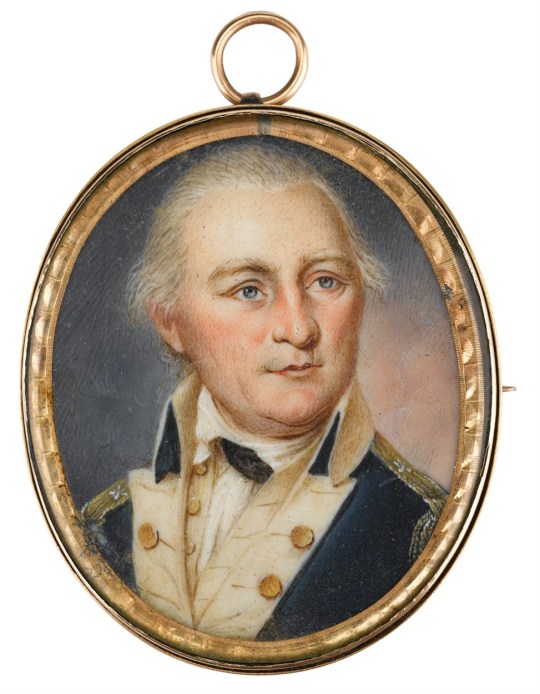
Continental officer miniatures
General George Washington Artist: James Peale
General George Clinton Artist: John Ramage
Colonel Philip Van Cortlandt Artist: John Ramage
Lt. Colonel John Laurens Artist: Charles Wilson Peale
Colonel Daniel Morgan After Charles Wilson Peale
#18th century#american revolution#18thcentury#General George Washington#General George Clinton#Colonel Philip Van Cortlandt#Colonel Daniel Morgan#Lieutenant Colonel John Laurens
68 notes
·
View notes
Text

Martha Washington passive aggressively ghost wrote this post
#he will never live that down#ever#like it’s so funny#I’ll be home by Christmas and then continues to fight an 8 year long war#that’s an L#clair rambles#turn amc#turn: washington's spies#turn washington’s spies#turn washingtons spies#amc turn#general george washington#george washington#martha washington#amrev#american revolutionary war#American Revolution#18th century#history funny#history memes#american girl#american girl dolls#ag dolls#ag#history#done with the felicity girls ofc#i did indeed make more that will get posted DHDJDJ#felicity merriman
174 notes
·
View notes
Photo
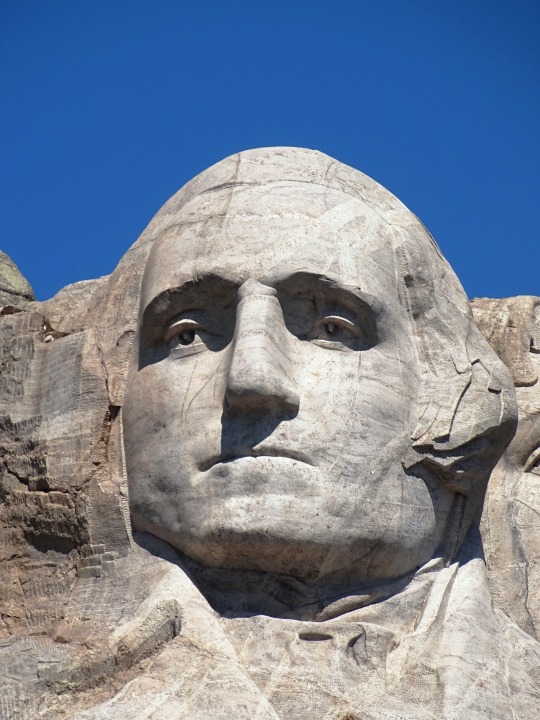
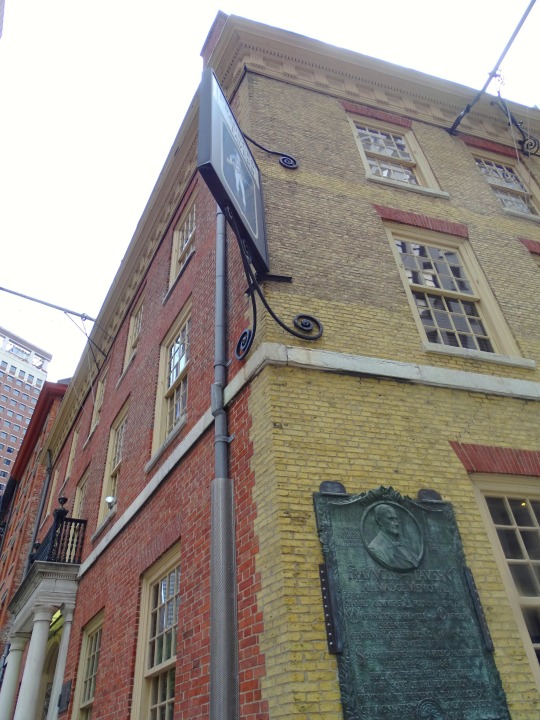
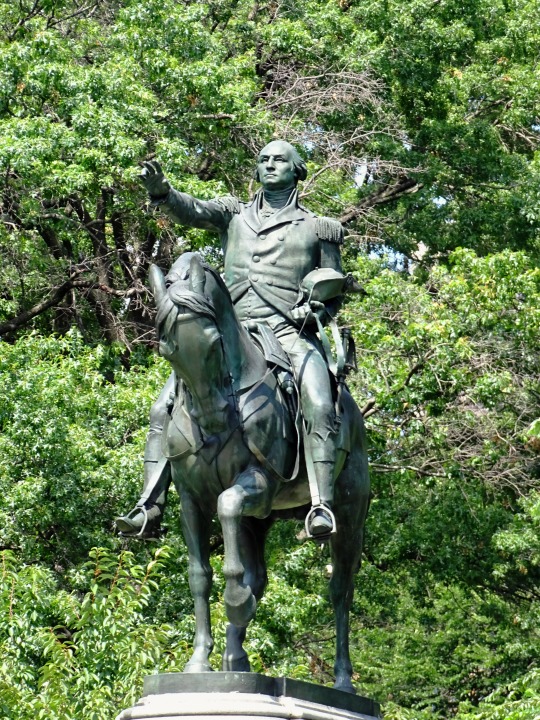
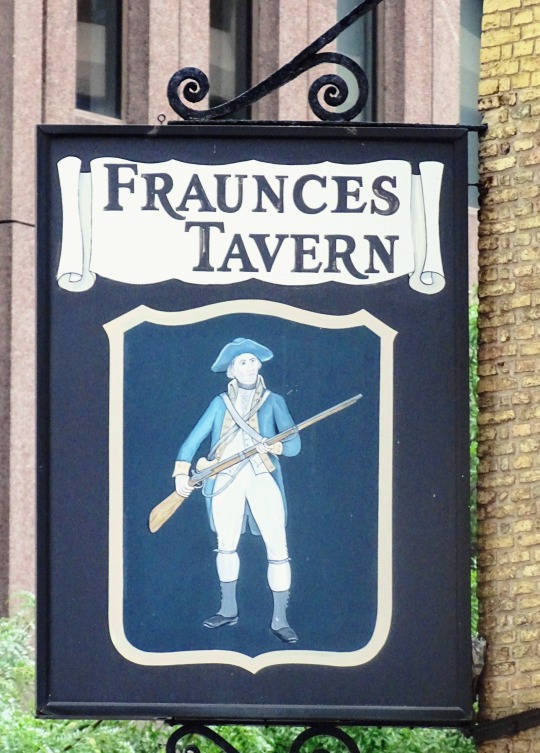
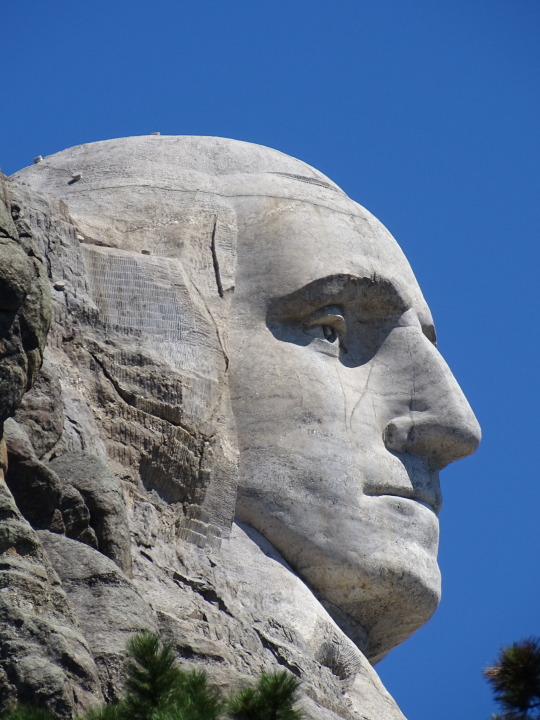


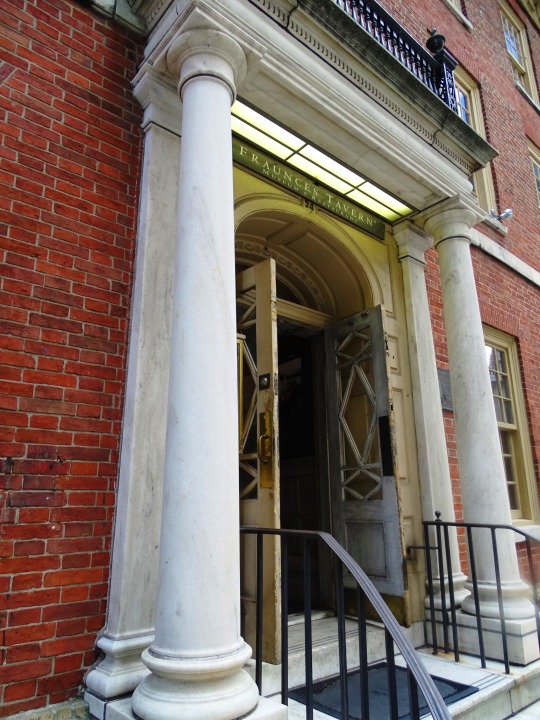
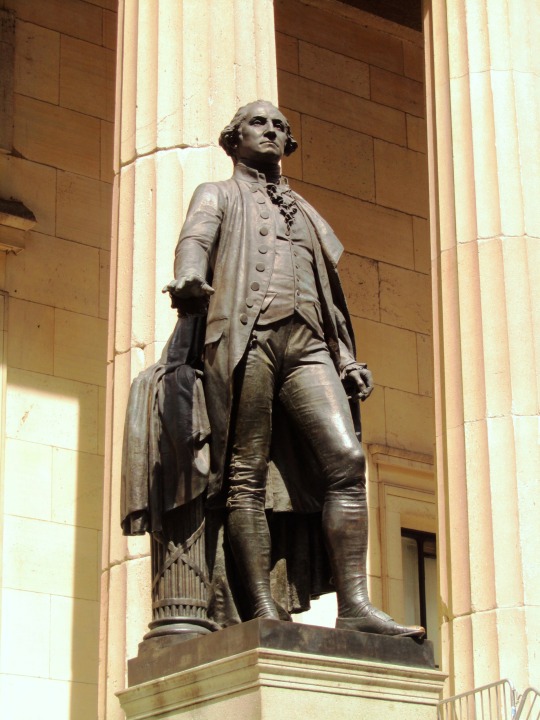
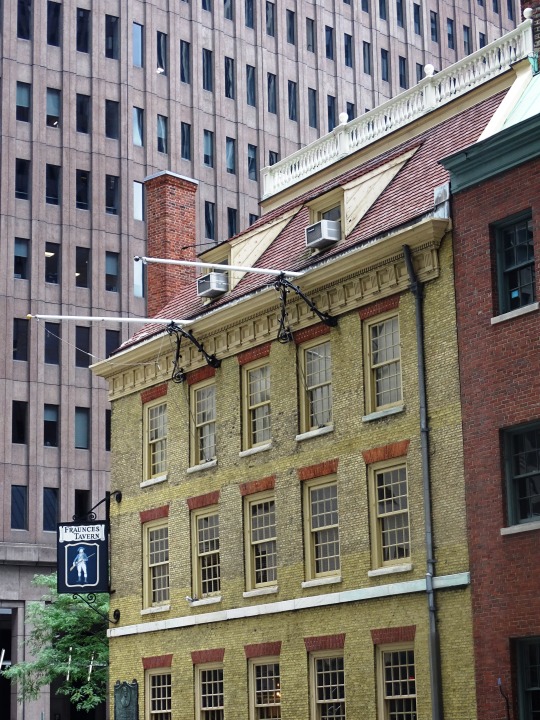
At Fraunces Tavern in New York City, U.S. General George Washington bid farewell to his officers on December 4, 1783.
#Fraunces Tavern#farewell#General George Washington#4 December 1783#Mount Rushmore National Memorial#South Dakota#original photography#USA#2019#summer 2018#Gutzon Borglum#Henry Kirke Brown#New York City#Lower Manhattan#architecture#cityscape#tourist attraction#landmark#sculpture#Thomas Ball#John Quincy Adams Ward#54 Pearl Street#anniversary#US history
2 notes
·
View notes
Text
#christmas#history#us history#american history#american revolution#american war of independence#george washington#general george washington#crossing the delaware#1776#1770s
1 note
·
View note
Text
GEORGE WASHINGTON
•Washington: A Life by Ron Chernow (BOOK | KINDLE | AUDIO)
•His Excellency: George Washington by Joseph J. Ellis (BOOK | KINDLE | AUDIO)
•George Washington: A Life by Willard Sterne Randall (BOOK)
JOHN ADAMS
•John Adams by David McCullough (BOOK | KINDLE | AUDIO)
•Passionate Sage: The Character and Legacy of John Adams by Joseph J. Ellis (BOOK | KINDLE | AUDIO)
•John Adams: Party of One by James Grant (BOOK)
THOMAS JEFFERSON
•Thomas Jefferson: The Art of Power by Jon Meacham (BOOK | KINDLE | AUDIO)
•American Sphinx: The Character of Thomas Jefferson by Joseph J. Ellis (BOOK | KINDLE | AUDIO)
•Thomas Jefferson: An Intimate History by Fawn Brodie (BOOK)
JAMES MADISON
•The Three Lives of James Madison: Genius, Partisan, President by Noah Feldman (BOOK | KINDLE | AUDIO)
•James Madison: A Life Reconsidered by Lynne Cheney (BOOK | KINDLE | AUDIO)
•James Madison: A Biography by Ralph Ketcham (BOOK | AUDIO)
JAMES MONROE
•James Monroe: A Life by Tim McGrath (BOOK | KINDLE | AUDIO)
•The Last Founding Father: James Monroe and a Nation's Call to Greatness by Harlow Giles Unger (BOOK | KINDLE | AUDIO)
•James Monroe: The Quest for National Identity by Harry Ammon (BOOK)
JOHN QUINCY ADAMS
•John Quincy Adams: American Visionary by Fred Kaplan (BOOK | KINDLE | AUDIO)
•John Quincy Adams: A Public Life, A Private Life by Paul C. Nagel (BOOK | KINDLE | AUDIO)
•The Lost Founding Father: John Quincy Adams and the Transformation of American Politics by William J. Cooper (BOOK | KINDLE | AUDIO)
•The Remarkable Education of John Quincy Adams by Phyllis Lee Levin (BOOK | KINDLE)
ANDREW JACKSON
•American Lion: Andrew Jackson in the White House by Jon Meacham (BOOK | KINDLE | AUDIO)
•Andrew Jackson: His Life and Times by H.W. Brands (BOOK | KINDLE | AUDIO)
•Andrew Jackson, Volume I: The Course of American Empire, 1767-1821 by Robert V. Remini (BOOK)
•Andrew Jackson, Volume II: The Course of American Freedom, 1822-1832 by Robert V. Remini (BOOK | KINDLE)
•Andrew Jackson, Volume III: The Course of American Democracy, 1833-1845 by Robert V. Remini (BOOK)
MARTIN VAN BUREN
•Martin Van Buren and the American Political System by Donald B. Cole (BOOK | KINDLE)
•Martin Van Buren and the Emergence of American Popular Politics by Joel H. Silbey (BOOK)
•Martin Van Buren: The Romantic Age of American Politics by John Niven (BOOK)
WILLIAM HENRY HARRISON
•A Child of the Revolution: William Henry Harrison and His World, 1773-1798 by Hendrik Booraem V (BOOK | KINDLE)
•Mr. Jefferson's Hammer: William Henry Harrison and the Origins of American Indian Policy by Robert M. Owens (BOOK | KINDLE | AUDIO)
•The Carnival Campaign: How the Rollicking 1840 Campaign of "Tippecanoe and Tyler Too" Changed Presidential Elections Forever by Ronald G. Shafer (BOOK | KINDLE | AUDIO)
#Books#Books About Presidents#Presidents#Presidency#Book Suggestions#Book Recommendations#George Washington#President Washington#General Washington#Washington Administration#John Adams#President Adams#Adams Administration#Thomas Jefferson#President Jefferson#Jefferson Administration#James Madison#President Madison#Madison Administration#James Monroe#Monroe Administration#President Monroe#John Quincy Adams#JQA#President J.Q. Adams#J.Q. Adams Administration#Andrew Jackson#President Jackson#General Jackson#Jackson Administration
67 notes
·
View notes
Note
Why do you hate Alexander Hamilton so much? The guy lived and died before you were even born dude. He isn’t going to come alive and bite you XD
No, his actions just persist in the policies that my home nation was founded upon.
#guy was a warmongerer and also wanted Washington to basically play king#his politics were conservative and he offered to buy enslaved persons for his wife if she wanted#so he's not the abolitionist hero some like to paint him as#and Burr only challenged Alexander to a duel after MANY YEARS of Alex undermining his political ambitions#and trying to undermine voting results (intentionally party-splitting to get the other to win) so obviously once that George III knew#this is without getting into the adultery#look the musical fucked I can't deny that even after LMM's personal issues and the fandom that was born of it#and bi rights or whatever#(I am bi)#but as a person he objectively sucked#and I am allowed to have opinions on people fictional and dead even if they are no longer capable of actively directly influencing Now#PARTICULARLY when it's someone whose actions Have Indeed influenced modern history#his face is on the $10 ffs THAT'S how influential he was#not just with the formation of the modern banks but in general#tbh replace Alexander Hamilton instead of Andrew Jackson with Harriet Tubman#bc Jackson HATED the banks and Hamilton would HATE having his legacy diminished#if we're replacing Jackson we should replace him with Crazy Horse or another historically significant indigenous person#answers and shitposts#personal
49 notes
·
View notes
Text
washington's resting bitch face game so strong his countrymen treated him like a god and elected him unanimously for all sorts of shit.
#simplifying but i think washington had a huge temper so he decided to shut up. and it just worked out really well#so he went. i will continue this strategy forever.#it feels like we take that god image for granted? so it's skipped over in the telling a lot of the time because the story goes#this young man was very brash and fought in the french indian war and then general and btw people think he's a god now#everyone knows he will be elected unanimously everyone!#like when did that happen lmao#greatest pr: resting bitch face. few words.#talk about how much you wanna go farm#george washington#historical hamilton#amrev#anyone know exactly when that godly image took hold?
22 notes
·
View notes
Text
One of the trends of the last several years in scholarship on the American Revolution has been to show how the Patriots were actually evil and incompetent morons
As I see it, this serves two functions:
One, it lets academics feel like they are dismantling American nationalism and by extension racism and the military industrial complex
Two, it gives the British an excuse to be nationalistic, because the only time they are allowed to be pleased with themselves is when it’s at the expense of the United States
Frankly, I think the more they can do to demonstrate how noble and savvy and sexy the British and the Loyalists were and how incompetent and incoherent and backward the Patriots were may as well be encouraged, because the more they prove it, the more embarrassing it becomes that they lost.
#George Washington wasn’t even that good a general!!#look at how stupid the British army made Americans look at every moment!#the Patriots only won because they were bullies and the French helped!#look a Win is a Win keep crying about it
83 notes
·
View notes
Text
Washington: Arnold wrote to you?!
Tallmadge: *blinks rapidly in a panic*
Hamilton: Uh oh, Dad's mad.
#amc turn#benjamin tallmadge#george washington#alexander hamilton#turn: washingtons spies#washingsons#george washingdad#washington's spies#general washington#revolutionary war
30 notes
·
View notes
Text

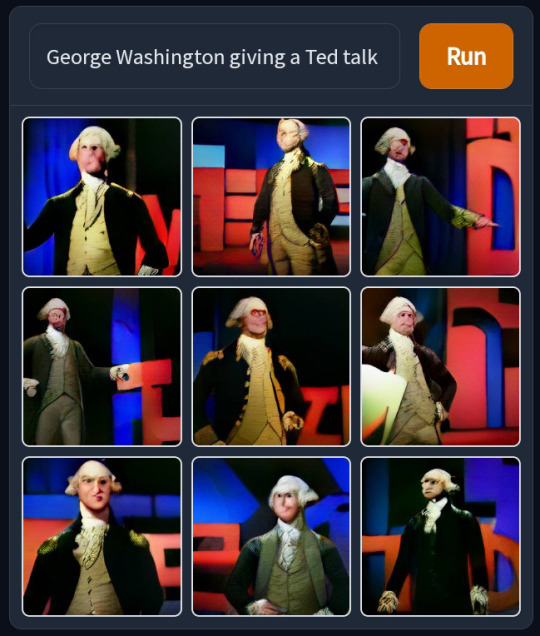



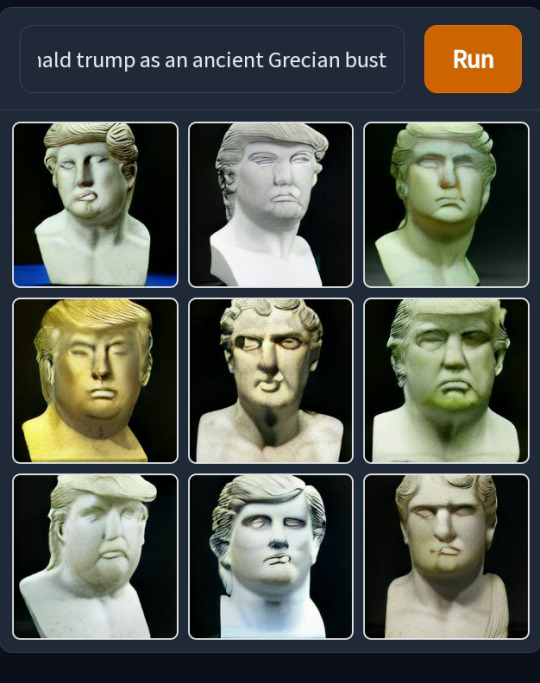




HELP I CANT STOP USING DALL E MINI IVE LITERALLY BEEN DOING THIS FOR HOURS
#remember this#help#funny#dall e mini#meme#my meme#my memes#Gordon Ramsay#gordon ramsay meme#ted talk#george Washington#dall e mini meme#Minecraft#steve Irwin#lord farquaad#perry the platypus#spock#star trek#star trek spock#ai generated#unreality
221 notes
·
View notes
Text
Washington: Son
Hamilton: I'm not your son
Washington: Shut up
Hamilton: Yes sir
#washington is the only one who can control ham#if you watch carefully you see he does everything the general asks#hamilton#alexander hamilton#george washington#hamilton incorrect quotes
41 notes
·
View notes
Text
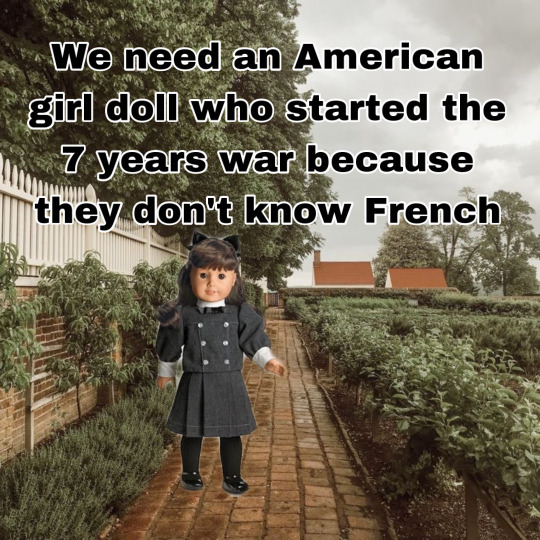
#Samantha appreance because to the suprise of no one I am a Samantha girlie#anyways more George slander#i think is arguably the funniest fumble in American history#like that’s so rough#clair rambles#turn amc#turn: washington's spies#amrev#american revolution#history#turn washington's spies#george washington#general george washington#turn washingtons spies#amc turn#18th century#18th century history#American history#Hamilton#history memes#7 years war#French Indian war#british history
171 notes
·
View notes
Text
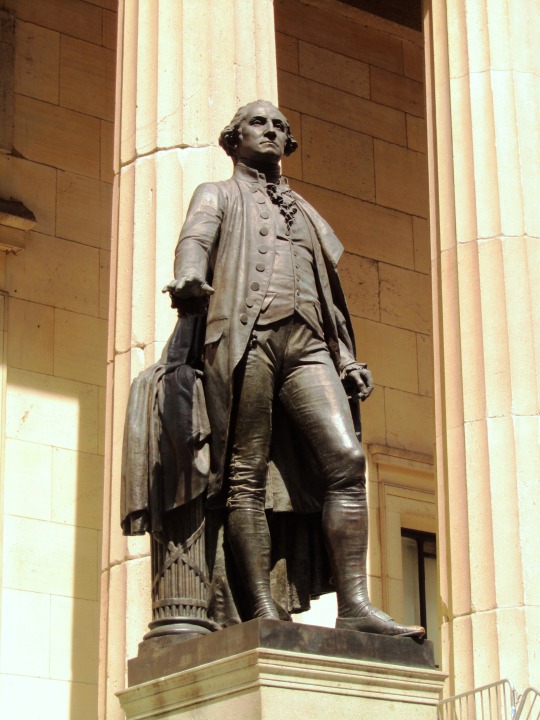


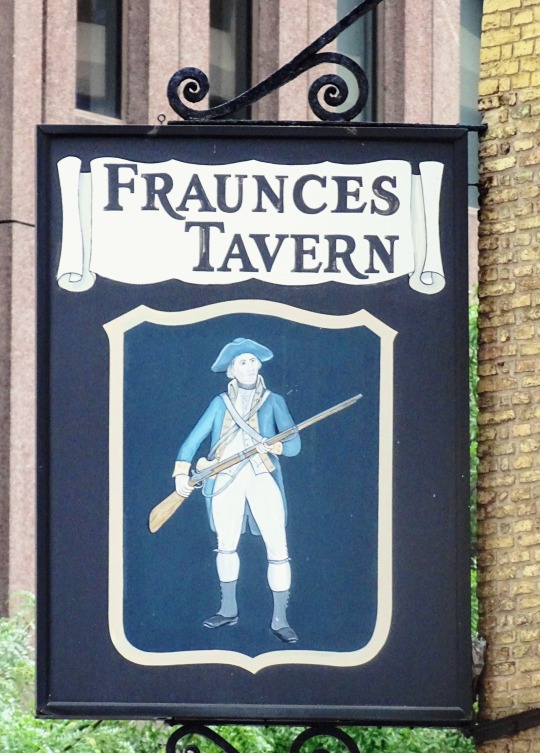


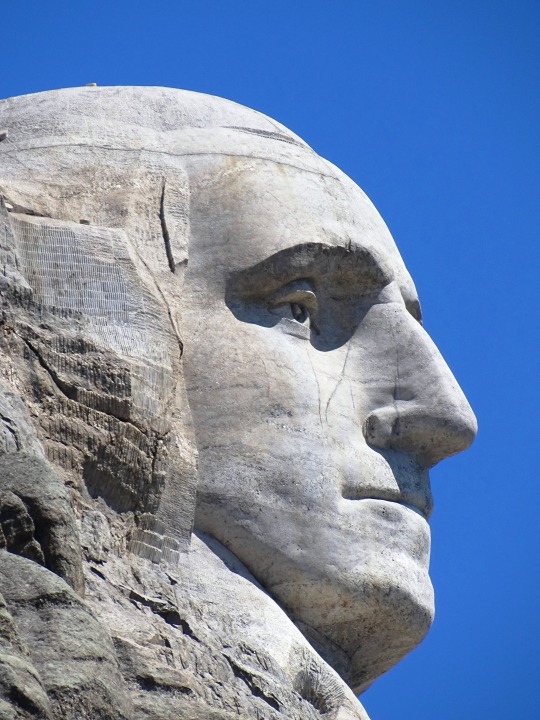
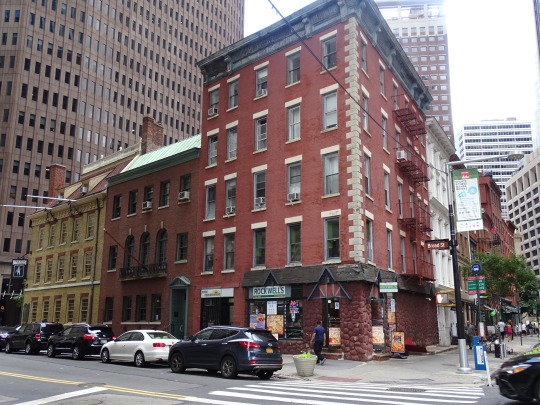
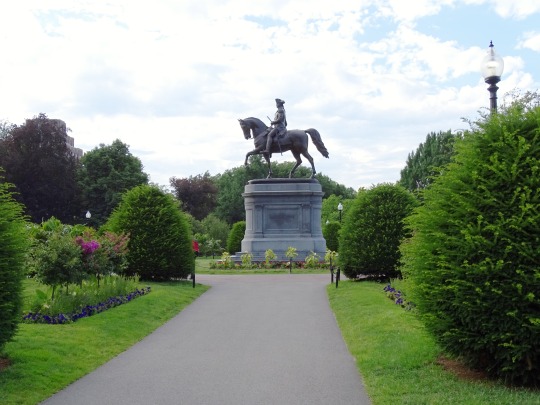

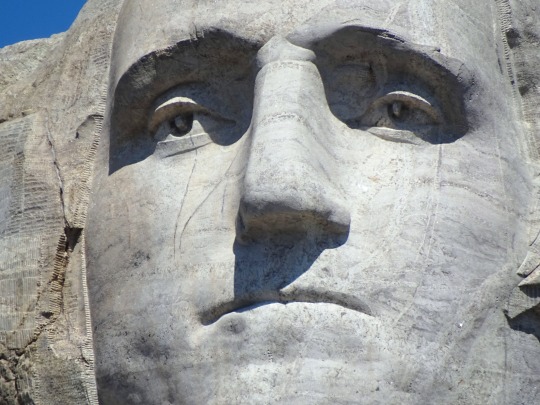
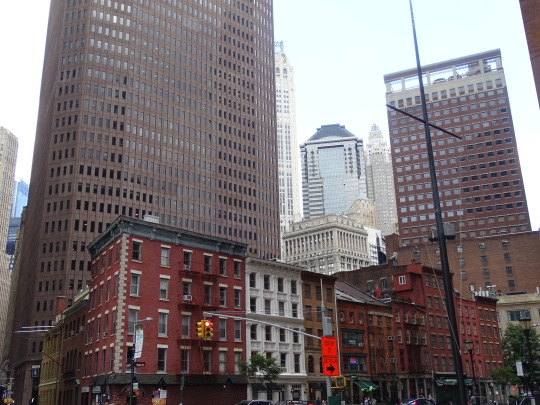
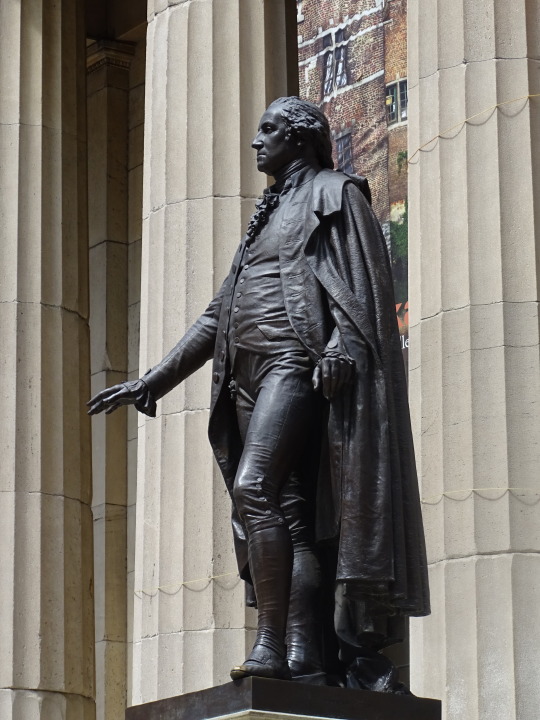
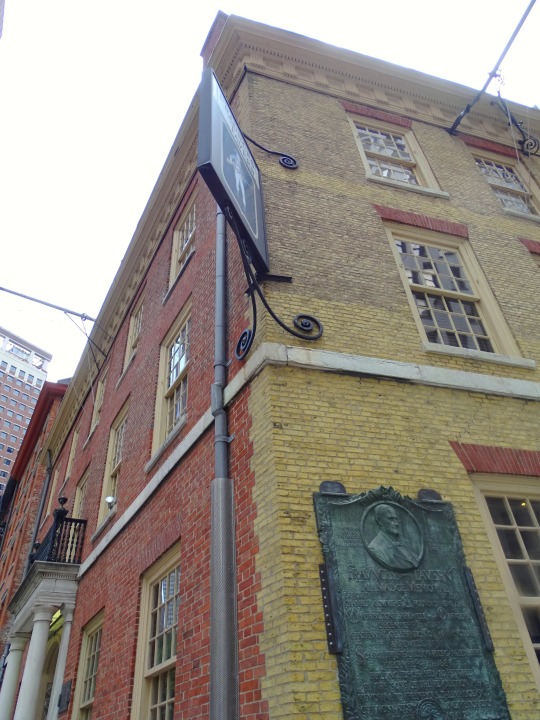
At Fraunces Tavern in New York City, U.S. General George Washington bid farewell to his officers on December 4, 1783.
#Fraunces Tavern#farewell#General George Washington#4 December 1783#Mount Rushmore National Memorial#South Dakota#original photography#USA#2019#summer 2018#Gutzon Borglum#Henry Kirke Brown#New York City#Lower Manhattan#architecture#cityscape#tourist attraction#landmark#sculpture#Thomas Ball#John Quincy Adams Ward#54 Pearl Street#240th anniversary#US history
1 note
·
View note
Text
man some of you have the best URLS.
#not dogs#tumblr#i get a laugh everytime general-george-washington likes a post#that and i almost pissed myself like a month ago when one of yall#called 'goncharovbignaturals' showed up#the creativity. the talent.#this is why i'm on tumblr#because you are all so unhinged. most of the time its fun#like i was on a nationally ranked congressional debate team and now george washington the blog likes my posts on tumblr.com
33 notes
·
View notes
Note
Which President, in your opinion, was the most reluctant to seek the position? Which wound up hating it the most by the end of his term?
I am a strong believer that nobody truly becomes President of the United States "reluctantly". That's not exactly the kind of job that seeks you, especially the modern Presidency.
For a significant slice of American history, many of the people nominated for President acted as if they were being called upon to run when, behind-the-scenes, they were very active in building their campaigns and corralling supporters. Until the 20th Century it was frowned upon to openly run for the Presidency, but almost all of the Presidents wanted the gig.
I'd say that George Washington was probably more reluctant than most of his successors and likely would have preferred retiring to Mount Vernon after the Revolution, but I think he also recognized that he was the guy who needed to be the President that set the precedents. I think Ulysses S. Grant would have been perfectly happy to not be President, but once he was elected in 1868 he also wanted to keep the job. He even tried to run for a third term in 1880.
That 1880 election might have been the one case where the winner -- James Garfield -- genuinely wasn't interested in the Presidency at that point. He had gone to the Republican National Convention to support fellow Ohioan John Sherman (and defeat Grant's hopes for a third term) and gained some major attention after giving a well-received speech placing Sherman's name in nomination. When the candidacies of Sherman and James G. Blaine -- another anti-Grant candidate -- stalled, Garfield became a compromise choice and was eventually nominated on the 36th ballot. Garfield was apparently legitimately shocked by the events leading to him leaving Chicago as the GOP nominee.
By most accounts, William Howard Taft was far more interested in a potential seat on the Supreme Court than becoming President. At heart he was a judge and believed himself to be better suited for the judiciary than the Executive Branch. But Taft turned down three offers by Theodore Roosevelt to be appointed to the Supreme Court (in 1902, 1903, and 1906) because he felt obligated to complete his work as Governor-General of the Philippines and then Secretary of War. But Taft's wife desperately wanted him to become President and by the time of President Roosevelt's third offer of a seat on the Court, Taft was already being talked about as Roosevelt's hand-picked successor in the White House. And, as with all other Presidents, once he had a taste for the job, he didn't want to give it up, running for re-election in 1912 against his former friend, Roosevelt.
Gerald Ford is the only other President who hadn't spent a significant portion of his political career with his eyes on the White House. Ford spent nearly a quarter-century in the House of Representatives and his main ambition was to be Speaker of the House, but Republicans weren't able to win control of the House when Ford was in Congressional leadership positions. But even with Ford being a creature of Congress, he did attempt to put himself forward as a nominee for the Vice Presidency, first in 1960 and then in 1968, and Nixon kicked the tires on picking him as his running mate in 1960. No one wants to be Vice President without seeing it as a potential stepping stone to the Presidency, particularly at that point in history before Vice Presidents were empowered with some real influence within the Administrations they served in.
As for who wound up hating it by the end of their time in office, I think it's safe to say that John Quincy Adams didn't shed too many tears when he was defeated for re-election in 1828. And I'm sure he wouldn't use the word "hate", but nobody can convince me that George W. Bush wasn't thoroughly ready to escape Washington by late-2007. There were times in 2008 when he seemed like he just wanted to hold a snap election like they have in parliamentary systems and go home to Texas. If some Presidential insider published a book that said that Bush asked if he could just give the keys to the White House to Barack Obama in July 2008, I wouldn't be the least bit shocked.
On the other hand, if there were no term limits, Bill Clinton would have been running for President in every election since 1992 (and the crazy thing is that he's still younger than both of the presumptive 2024 nominees). I'm kind of surprised that he didn't make an effort to repeal the 22nd Amendment in the past 20 years. Clinton loved being President and was trying to find something Presidential to do until minutes before his successor was inaugurated in 2001.
#History#Presidents#Presidential Candidates#Presidential Nominees#Presidential Elections#Presidency#Reluctant Presidents#Politics#Political History#Presidential History#George Washington#President Washington#General Washington#Ulysses S. Grant#President Grant#General Grant#1880 Election#1880 Republican National Convention#James Garfield#President Garfield#William Howard Taft#President Taft#Chief Justice Taft#Gerald Ford#President Ford#John Quincy Adams#JQA#President Adams#George W. Bush#Bush 43
34 notes
·
View notes